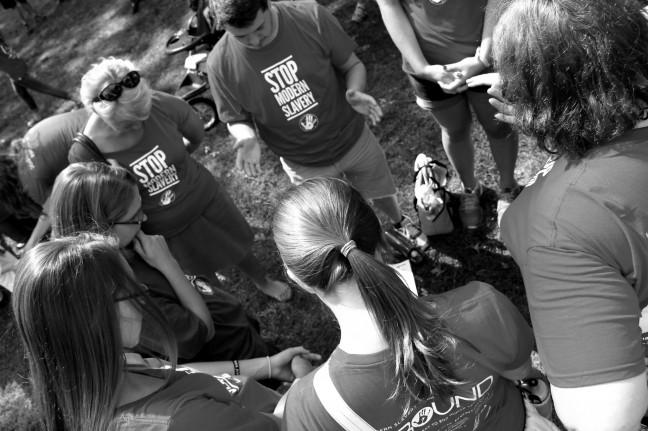Dane County’s arrest of Lindy Gill, an alleged human trafficker, brought to light one of the city and state’s most dismal illegal industries — one that lawmakers are trying to bring down.
Human trafficking refers to a wide swath of crimes, including forced labor and sexual acts. Gill’s alleged crimes, for example, involved using heroin to coerce victims into prostitution. Jill Karofsky, victim services administrator for the Wisconsin Department of Justice, said cases of human trafficking are often tied to narcotics, but not always.
“Pimps use all types of methods to coerce victims,” Karofsky said. “Often, it is literally torture.”
Karofsky said there are cases in Wisconsin where traffickers will use extensive methods to keep victims under their authority, including extreme physical and emotional abuse.
It is often difficult for citizens and law enforcement to identify cases of human trafficking because the deals often happen online and under wraps, especially in places like Madison, where prostitutes are not walking around the street, said Jodi Emerson, development director for Fierce Freedom, a group that works toward “exposing modern-day slavery in our hometowns.”
“It’s very underhanded and very undercurrent, which makes it really hard to fight because when it’s not right out in front of people, they don’t want to believe it’s happening,” Emerson said.
It is unclear if the coercion of people to participate against their will in these types of acts has increased in recent years, but Emerson said awareness of the issue certainly has. At the same time, she said there are still areas where Wisconsin could improve.
“If I had someone call me up today and say, ‘I’m a victim of human trafficking and want to get out of it,’ I don’t really have anywhere to put them,” Emerson said. “And that just absolutely breaks my heart to think that we as a whole state don’t have anywhere for adults to go and very few places for children to go.”
Karofski said one of the largest obstacles law enforcement faces is the delicacy of human trafficking cases, as it can be difficult to gain a victim’s trust when they are focused on having food and shelter first. She said this was especially true in cases where the victims are minors.
Emerson said another place Wisconsin law could improve is the way it handles prostitutes who are under the age of 18, as minors can be tried for these crimes, even though they are not legally able to give consent.
Emerson said an unintended effect of strengthened drug trafficking laws in Wisconsin is a shift in criminal enterprises from drugs to prostitution. She said it is becoming easier and more profitable for gangs and other criminals to sell something repeatedly rather than only once.
Rep. Amy Loudenbeck, R-Clinton, has worked on human trafficking legislation in the state Legislature since she was elected in 2011. She said there have been three trafficking bills passed all in the past year, including tightening provisions to help prosecutors prove these cases and tightening the definition of coercion.
She also introduced a bill this session that would require human trafficking hotline posters in rest stops, restaurants and strip clubs. Loudenbeck said although the state has made significant strides in trying to solve the issue, she agreed that Wisconsin can improve its victim services.


